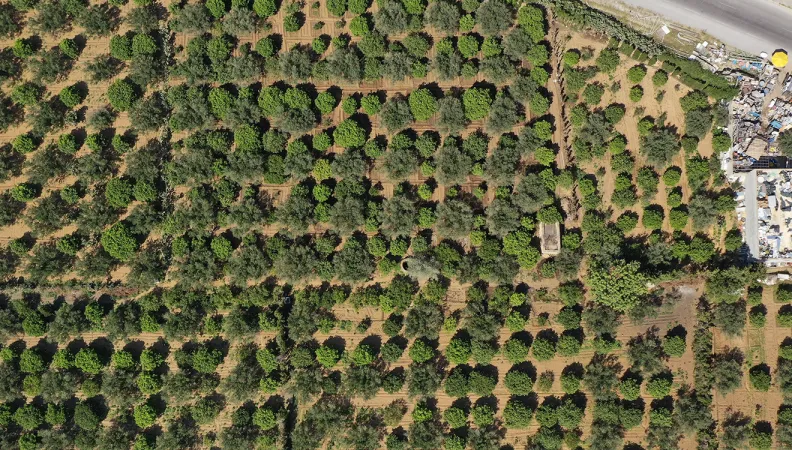Share the page
COP28: "We need to strengthen climate finance and adaptation"
Published on

With COP28 taking place in Dubai from 30 November to 12 December 2023, Arnaud Uzabiaga, Head of Proparco’s Impacts Division, explains how Agence Française de Développement's private sector arm is ramping up its commitment to achieving the targets set at the summit.
What are the key issues for Proparco at COP28?
Arnaud Uzabiaga: COP28 is a big event for AFD Group, and for Proparco as well. This climate negotiations summit will enable us to target our climate finance initiatives. This COP has many objectives, including presenting the first global five-year assessment since the Paris Climate Agreement of the operational capacity of the Loss and Damage Fund, approved at COP27. Proparco is concerned by two key points in particular:
The first involves financing for developing countries designed to help them make the transition and adapt to the consequences of climate change. As such, a new financial target will be set next year at COP29. It will replace the pledge made in 2009 to finance climate action in developing countries to the tune of USD 100 billion dollars a year.
Negotiations have already begun on the structure of the target and have highlighted major divergences of opinion. Some developing countries want the new target to consist solely of subsidies or public funding, while others want to include private funding.
The second issue of concern to Proparco is the Global goal on adaptation set in Glasgow in 2021. This aims to double the amount of climate finance earmarked for adaptation by 2025.
What will Proparco's contribution to this process be?
A.U.: The financial target of $100 billion a year in climate finance for developing countries should finally be reached this year for the first time – three years late. It is a priority within the mandate of AFD Group, which shoulders the bulk of France's contribution and represents around 8% of all contributions to this objective. With over €900 million in 2022, Proparco will contribute around 1% of this collective effort.
This involves financing mobility projects, large-scale renewable energy, off-grid electricity production systems, support for industry transition, etc. The most recent signature went on the Dakar Mobility project to finance the first all-electric bus rapid transit system on the African continent. Our action also involves efforts to channel private finance into this type of project.
We also contribute to the Global goal on adaptation incorporated into our Strategy 2023-2027, by aiming to double the amount of our climate finance earmarked for adaptation by 2025. Ramping up our adaptation strategy is crucial for avoiding and limiting future loss and damage. It is already taking shape this year with two flagship projects financed in the Brazilian water sector: SABESP and Aguas de Rio, which provide major climate change adaptation co-benefits.
Further reading: Private Sector & Development magazine: our issue dedicated to climate change adaptation
What progress has been made in terms of Proparco's trajectory and the objectives of the Paris Climate Agreement?
A.U.: As you know, the three main objectives of the Paris Agreement are mitigation (limiting the rise in temperature to 1.5°C and keeping it well below 2°C when compared to the pre-industrial era), adaptation to climate change and aligning financial flows with mitigation and adaptation objectives.
In 2017, AFD Group committed to making its business "100% compatible" with the Paris Agreement. Methods have been developed since 2018 to analyse the risk of non-alignment for our direct projects, then in 2021 for our intermediated projects (run via financial institutions and investment funds). Most importantly, strengthening our exclusion policies - especially halting financing for fossil fuel sectors, from 2013 on for coal-fired power stations - help to reduce this risk.
For direct financing, we begin by measuring the greenhouse gas emissions associated with the project. We then refine the analysis by factoring in any misalignment with the decarbonising objectives and trajectories of the country concerned. We then go on to assess whether less carbon-intensive alternatives exist, and we ultimately consider the risk of the project locking the country into a long-term carbon trajectory.
For intermediated financing via investment funds, we help the funds perform alignment analyses. For credit lines granted to financial institutions, we give priority to analysing non-dedicated transactions. The analysis factors in the client's exposure to the main emission-intensive sectors and how this has evolved recently. Operations dedicated to financing climate or gender projects or aimed at SMEs, are strictly checked against our exclusion list.
Finally, this year we undertook a process to consolidate the emissions within our portfolio. This is a major quantitative exercise that rounds out the more qualitative project analyses performed since 2018. This dual action will enable us to make progress in aligning our financial flows with the objectives of the Paris Climate Agreement.
